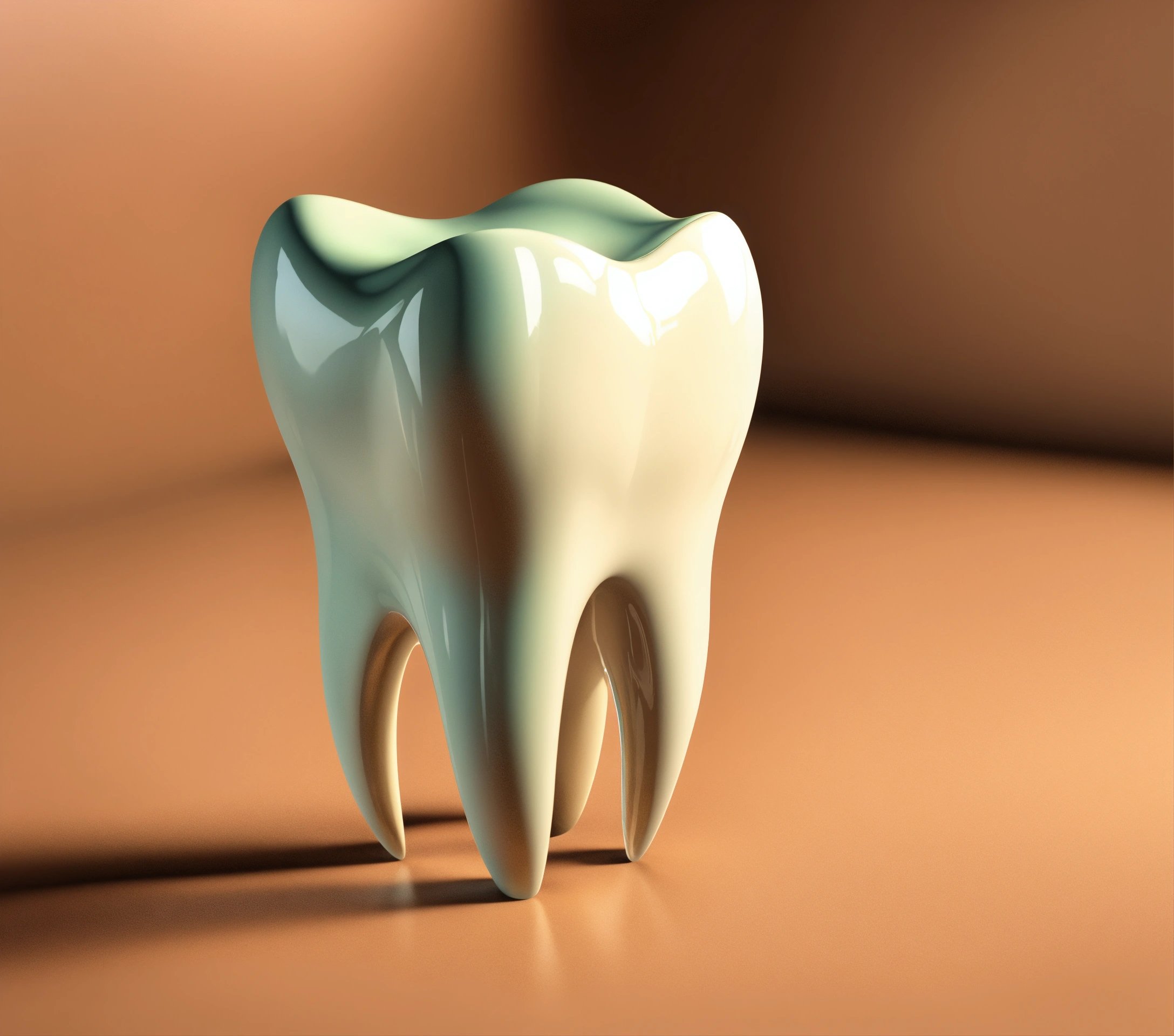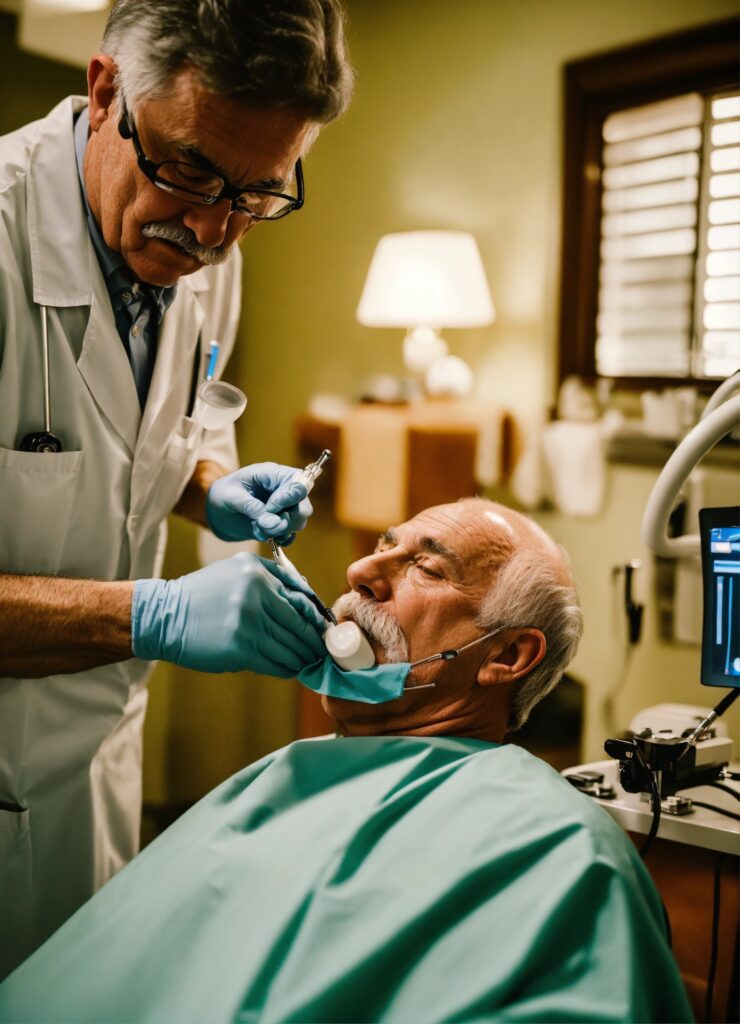Great Health Great Fitness
“Smile Bright: Navigating Oral Health and Essential Dental Care”
Maintaining a healthy smile requires more than just brushing your teeth. It involves understanding the fundamentals of oral health and implementing essential dental care practices. In 'Smile Bright: Navigating Oral Health and Essential Dental Care', we delve into the importance of dental hygiene, the impact of nutrition on oral health, and dental care recommendations for every stage of life. From infancy to old age, prioritizing oral health can lead to a lifetime of healthy smiles and optimal well-being.

Introduction
Maintaining good oral health is essential for overall well-being and quality of life. Your smile is often the first thing people notice about you, and it can significantly impact your confidence and self-esteem. However, oral health goes beyond just having a bright smile; it encompasses the health of your teeth, gums, and mouth, which can affect your ability to eat, speak, and interact with others.
In this comprehensive guide, we will explore the importance of oral health and essential dental care practices to help you achieve a healthy and beautiful smile. From understanding common dental problems to learning about preventive dental care and emergency treatments, we will cover everything you need to know to maintain optimal health at every stage of life.
Whether you’re a parent looking to instill good dental habits in your children, an adult seeking to improve your oral hygiene routine, or a senior navigating the challenges of aging teeth and gums, this guide is designed to provide you with valuable insights and practical tips to keep your smile bright and your mouth healthy. So, let’s dive in and discover the keys to a lifetime of oral health and happiness.
Understanding Oral Health

Oral health encompasses the health of your teeth, gums, and mouth, and it plays a crucial role in your overall well-being. Good health is not just about having a bright smile; it is essential for eating, speaking, and maintaining proper nutrition. To understand oral health fully, let’s break down its key components:
- Teeth: Your teeth are essential for chewing food and speaking clearly. They are made up of enamel, dentin, and pulp, and each tooth is anchored in the jawbone by roots. Maintaining healthy teeth involves proper brushing, flossing, and regular dental check-ups to prevent cavities, tooth decay, and other dental problems.
- Gums: The gums, or gingiva, surround and support the teeth. Healthy gums are firm, pale pink, and fit snugly around the teeth. Gum disease, also known as periodontal disease, can occur when bacteria in plaque build-up along the gumline, leading to inflammation and infection. Proper hygiene and regular dental cleanings can help prevent gum disease and maintain gum health.
- Mouth: The mouth includes the tongue, palate, cheeks, and lips, all of which play important roles in chewing, swallowing, and speaking. Maintaining good hygiene, such as brushing the tongue and inside of the cheeks, helps remove bacteria and food particles that can contribute to bad breath and oral infections.
- Saliva: Saliva plays a crucial role in health by moistening the mouth, neutralizing acids, and washing away food particles and bacteria. Dry mouth, or xerostomia, can increase the risk of dental problems such as tooth decay and gum disease. Staying hydrated and avoiding substances that can dry out the mouth, such as tobacco and alcohol, can help maintain saliva production.
Overall, understanding health involves recognizing the interconnectedness of the teeth, gums, mouth, and saliva, and the importance of proper oral hygiene habits and regular dental care in maintaining optimal oral health. By prioritizing oral health and adopting healthy habits, you can enjoy a bright smile and a lifetime of good oral health.
Common Dental Problems
Maintaining good oral health involves being aware of and addressing common dental problems that can arise. Here are some of the most prevalent dental issues:
- Tooth Decay: Tooth decay, also known as dental caries or cavities, occurs when bacteria in plaque produce acids that attack the enamel, causing it to break down. Symptoms may include tooth sensitivity, pain when biting down, and visible pits or holes in the teeth.
- Gum Disease: Gum disease, also called periodontal disease, occurs when plaque buildup along the gumline leads to inflammation and infection of the gums. Early-stage gum disease, known as gingivitis, may cause redness, swelling, and bleeding gums. If left untreated, it can progress to periodontitis, causing gum recession, bone loss, and eventual tooth loss.
- Tooth Sensitivity: Tooth sensitivity can occur when the enamel on the outer surface of the teeth wears down, exposing the underlying dentin and nerve endings. Common triggers for tooth sensitivity include hot or cold foods and beverages, acidic foods, and brushing or flossing.
- Bad Breath: Bad breath, or halitosis, can result from poor oral hygiene, gum disease, dry mouth, and certain foods or medications. Persistent bad breath may indicate an underlying dental or medical condition and should be evaluated by a dentist.
- Tooth Erosion: Tooth erosion occurs when acids from foods, beverages, or stomach acid wear away the enamel on the teeth. Common causes of tooth erosion include consuming acidic foods and drinks, acid reflux, and brushing too aggressively.
- Oral Cancer: Oral cancer can affect the lips, tongue, cheeks, floor of the mouth, palate, and throat. Risk factors for oral cancer include tobacco use, heavy alcohol consumption, sun exposure to the lips, and human papillomavirus (HPV) infection. Early detection through regular dental check-ups is crucial for successful treatment.
- Toothaches: Toothaches can result from various causes, including tooth decay, gum disease, dental abscesses, cracked teeth, and impacted wisdom teeth. Persistent or severe toothaches should be evaluated by a dentist to determine the underlying cause and appropriate treatment.
- Dental Trauma: Dental trauma, such as chipped, cracked, or knocked-out teeth, can occur due to accidents, falls, sports injuries, or biting down on hard objects. Immediate dental care is necessary to prevent further damage and preserve the tooth’s structure and function.
By understanding and addressing these common dental problems, you can maintain optimal oral health and prevent more serious dental issues in the future. Regular dental check-ups, proper oral hygiene habits, and a healthy diet are essential for keeping your smile bright and healthy.
Importance of Dental Hygiene

Dental hygiene plays a crucial role in maintaining optimal oral health and preventing common dental problems. Here are several reasons why dental hygiene is important:
- Prevents Tooth Decay: Proper dental hygiene practices, such as brushing and flossing regularly, help remove plaque from the teeth, preventing the buildup of bacteria that can lead to tooth decay and cavities.
- Reduces Risk of Gum Disease: Good dental hygiene habits help keep the gums healthy by removing plaque and food particles that can irritate the gum tissue and lead to gum disease. Regular brushing and flossing can help prevent gingivitis and more severe forms of periodontal disease.
- Prevents Bad Breath: Proper oral hygiene helps eliminate food particles, bacteria, and plaque that can contribute to bad breath. Brushing your teeth, tongue, and gums regularly can help keep your breath fresh and clean.
- Preserves Tooth Enamel: Brushing your teeth with fluoride toothpaste helps strengthen tooth enamel, making it more resistant to acid attacks from bacteria and acidic foods. This can help prevent tooth erosion and sensitivity.
- Improves Overall Health: Maintaining good oral hygiene is not only essential for oral health but also contributes to overall health and well-being. Poor oral hygiene has been linked to an increased risk of systemic conditions such as heart disease, diabetes, and respiratory infections.
- Saves Money: Preventive dental care, such as regular dental check-ups and cleanings, is often more cost-effective than treating dental problems that arise due to poor oral hygiene. By investing in dental hygiene now, you can save money on potentially expensive dental treatments in the future.
- Boosts Confidence: A healthy smile can boost your self-confidence and improve your overall appearance. Good dental hygiene habits, along with regular dental check-ups, can help you maintain a bright, healthy smile that you can feel proud of.
Overall, dental hygiene is essential for maintaining healthy teeth and gums, preventing dental problems, and promoting overall health and well-being. By practicing good dental hygiene habits daily and scheduling regular dental check-ups, you can enjoy a lifetime of healthy smiles.
Nutritional Impact on Oral Health

Nutrition plays a significant role in maintaining optimal oral health. The foods and beverages we consume can either promote dental health or contribute to dental problems. Here’s how nutrition impacts oral health:
- Tooth Decay Prevention: A balanced diet that is low in sugars and refined carbohydrates can help prevent tooth decay. Sugary and acidic foods and drinks provide fuel for bacteria in the mouth, leading to the production of acids that attack tooth enamel. Consuming a diet rich in fruits, vegetables, lean proteins, and whole grains can help reduce the risk of cavities.
- Strengthening Tooth Enamel: Calcium and phosphorus are essential minerals for building and remineralizing tooth enamel. Foods rich in calcium, such as dairy products, leafy greens, and almonds, can help strengthen teeth and protect against decay. Phosphorus-rich foods, such as meat, fish, eggs, and nuts, also support tooth enamel health.
- Gum Health Promotion: Vitamin C plays a crucial role in gum health, as it supports collagen production and helps maintain the integrity of gum tissue. Citrus fruits, strawberries, kiwi, and bell peppers are excellent sources of vitamin C. Additionally, foods rich in antioxidants, such as berries, nuts, and leafy greens, can help reduce inflammation and support gum health.
- Saliva Production: Adequate hydration is essential for saliva production, which helps rinse away food particles and bacteria, neutralize acids, and remineralize tooth enamel. Drinking plenty of water throughout the day can help maintain saliva flow and promote oral health.
- Oral Wound Healing: Certain nutrients, such as vitamin E, vitamin K, and zinc, play roles in wound healing and tissue repair in the mouth. Including foods rich in these nutrients, such as nuts, seeds, leafy greens, and seafood, can support oral wound healing after dental procedures or injuries.
- Acid Erosion Prevention: Acidic foods and drinks, such as citrus fruits, carbonated beverages, and vinegar-based dressings, can erode tooth enamel over time. Consuming these acidic foods in moderation and rinsing with water afterward can help minimize the risk of acid erosion.
- Overall Health Impact: Poor nutrition can weaken the immune system and increase susceptibility to oral infections and gum disease. Conversely, a balanced diet that meets nutrient needs can support overall health and contribute to a healthy mouth.
Overall, adopting a balanced diet that is rich in nutrient-dense foods and low in sugars and acids can promote optimal oral health and reduce the risk of dental problems. Pairing good nutrition with proper oral hygiene practices, such as regular brushing, flossing, and dental check-ups, is key to maintaining a healthy smile.
Dental Care Across the Lifespan
Dental care needs vary at different stages of life, from infancy to old age. Understanding these needs and implementing appropriate dental care practices can help maintain optimal oral health throughout the lifespan. Here’s a breakdown of dental care recommendations for each stage of life:
- Infancy (0-2 years):
- Begin oral care even before teeth erupt by gently wiping the gums with a clean, damp cloth after feedings.
- Once teeth erupt, start brushing with a soft-bristled infant toothbrush and a smear of fluoride toothpaste.
- Avoid putting babies to bed with bottles containing sugary liquids to prevent early childhood cavities.
- Early Childhood (2-6 years):
- Encourage regular brushing with a pea-sized amount of fluoride toothpaste.
- Supervise brushing to ensure thorough cleaning and proper technique.
- Limit sugary snacks and drinks and encourage healthy eating habits.
- Childhood (6-12 years):
- Continue to supervise brushing and reinforce good oral hygiene habits.
- Consider dental sealants to protect the chewing surfaces of permanent molars from decay.
- Encourage regular dental check-ups and cleanings to monitor oral health and address any issues early.
- Adolescence (12-18 years):
- Emphasize the importance of oral hygiene and regular dental visits.
- Discuss the effects of lifestyle factors such as diet, tobacco use, and oral piercings on oral health.
- Monitor orthodontic needs and consider orthodontic treatment if necessary.
- Adulthood (18-65 years):
- Maintain good oral hygiene habits, including brushing twice a day, flossing daily, and using fluoride toothpaste.
- Schedule regular dental check-ups and cleanings every six months or as recommended by your dentist.
- Address any dental issues promptly, including tooth decay, gum disease, or oral health changes due to aging.
- Older Adults (65+ years):
- Continue to prioritize oral hygiene and regular dental visits.
- Be aware of oral health changes associated with aging, such as dry mouth, gum recession, and tooth sensitivity.
- Consider dental implants, dentures, or other restorative treatments to replace missing teeth and restore oral function.
Throughout the lifespan, maintaining good oral hygiene practices, eating a balanced diet, avoiding tobacco use, and seeking regular dental care are essential for preserving oral health and preventing dental problems. By addressing dental care needs at each stage of life, individuals can enjoy a lifetime of healthy smiles.
conclusion
Maintaining good oral health is essential for overall well-being and quality of life at every stage of life. From infancy to old age, adopting proper dental care practices and seeking regular dental check-ups can help prevent dental problems, preserve natural teeth, and promote a healthy smile.
Throughout this guide, we’ve explored the importance of dental hygiene, the impact of nutrition on oral health, and dental care recommendations across the lifespan. We’ve discussed common dental problems and how preventive measures, such as regular brushing, flossing, and dental check-ups, can help mitigate the risk of tooth decay, gum disease, and other oral health issues.
We’ve also highlighted the importance of early intervention and proactive dental care in addressing dental problems promptly and preserving oral health. By adopting healthy habits, such as maintaining good oral hygiene, eating a balanced diet, avoiding tobacco use, and seeking regular dental care, individuals can enjoy a lifetime of healthy smiles and optimal oral health.
In conclusion, oral health is an integral part of overall health and well-being, and it requires ongoing attention and care at every stage of life. By prioritizing dental hygiene and seeking regular dental check-ups, individuals can maintain healthy teeth and gums, prevent dental problems, and enjoy the benefits of a beautiful smile for years to come. For more information you can check our blogs “Exploring Overweight and Obesity: Impacts, Challenges, and Empowered Strategies”.
